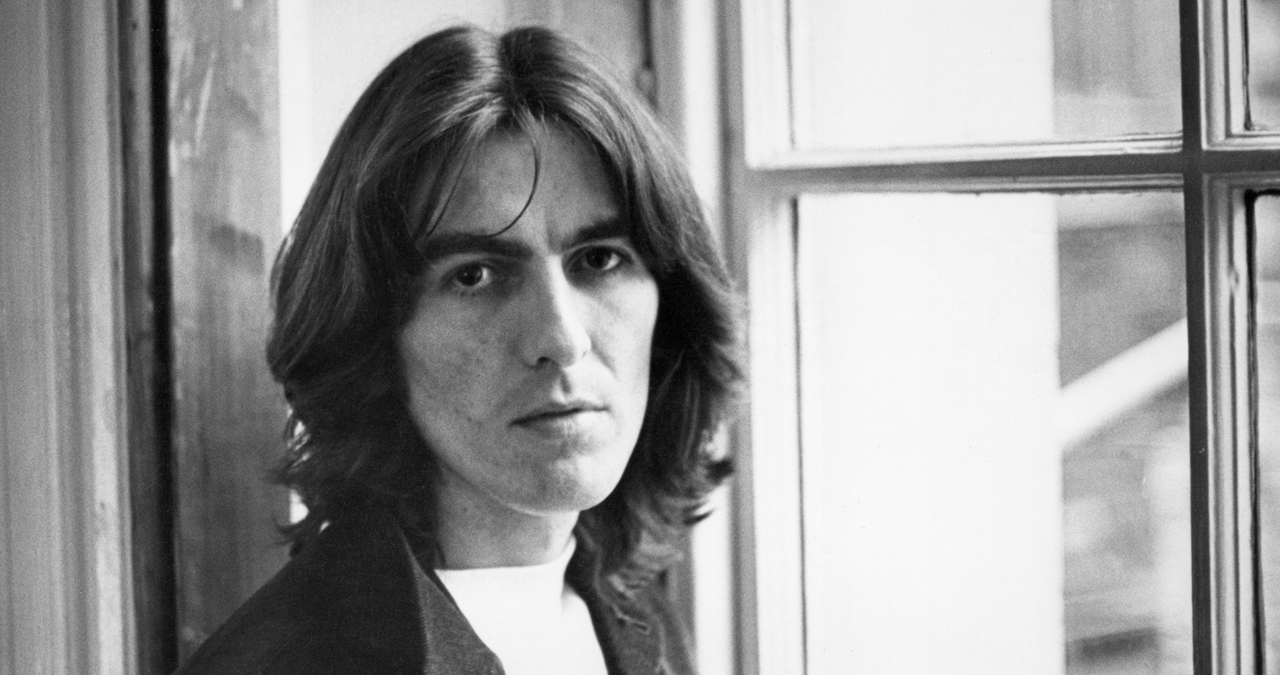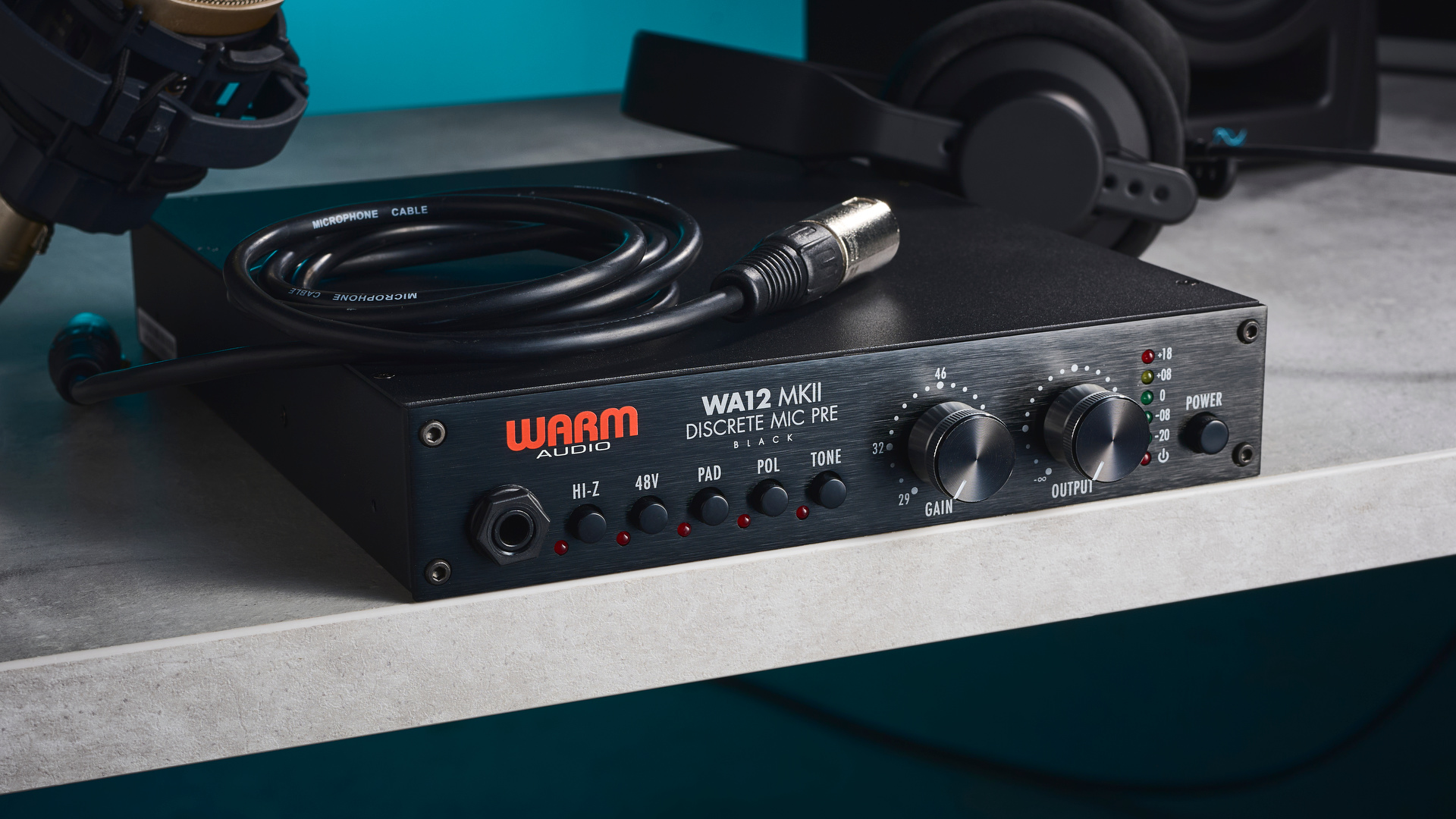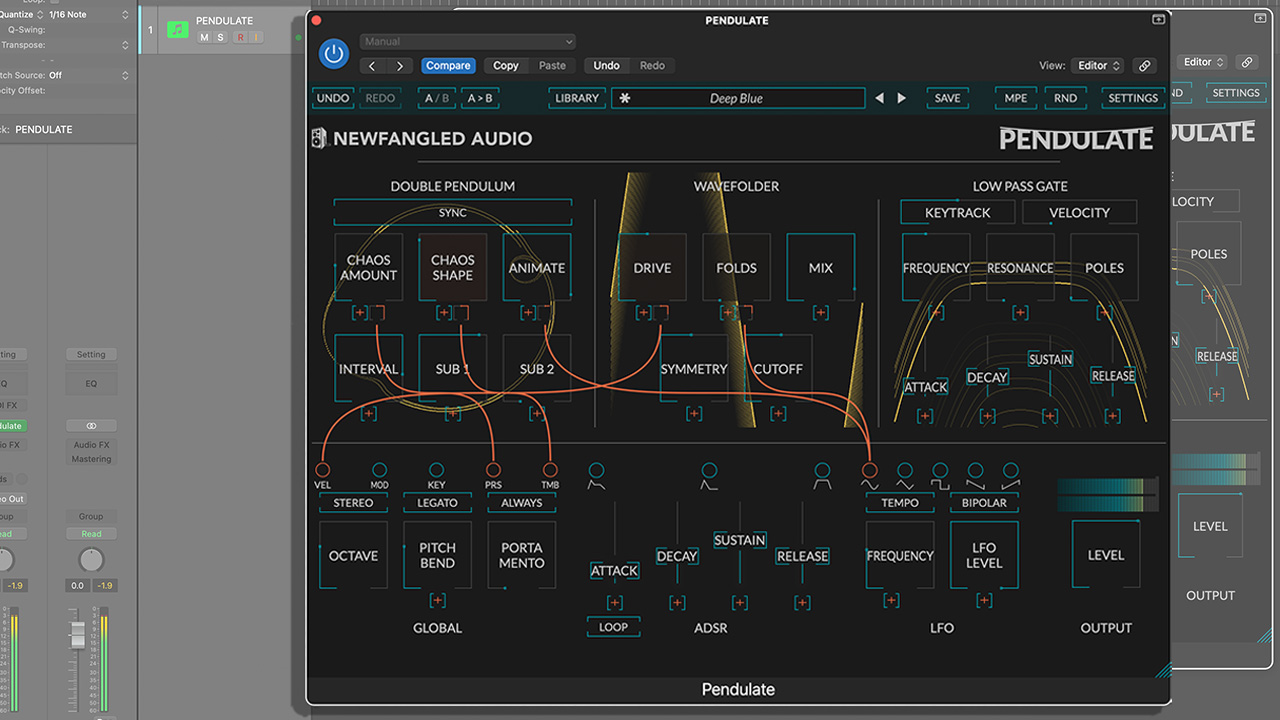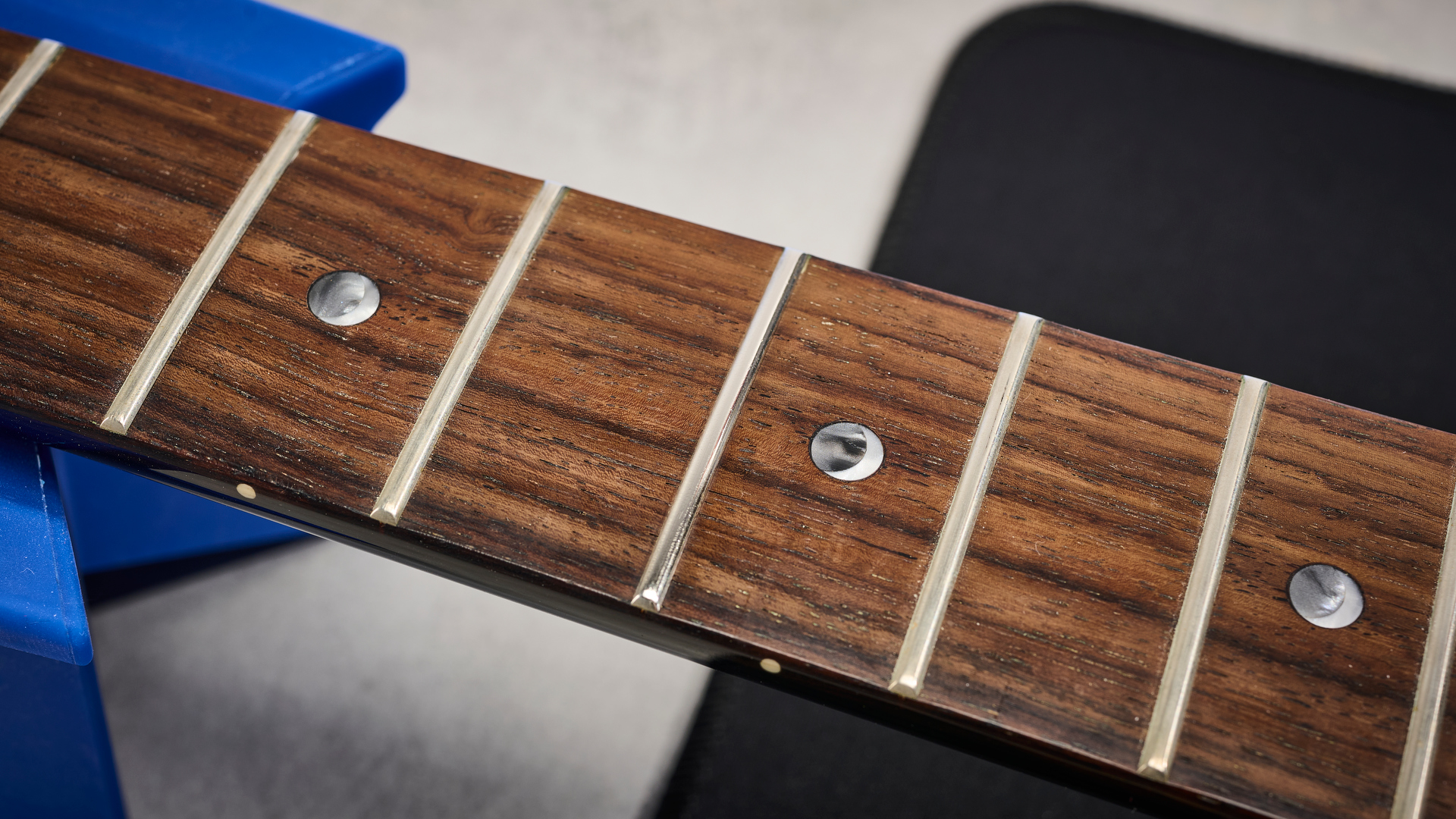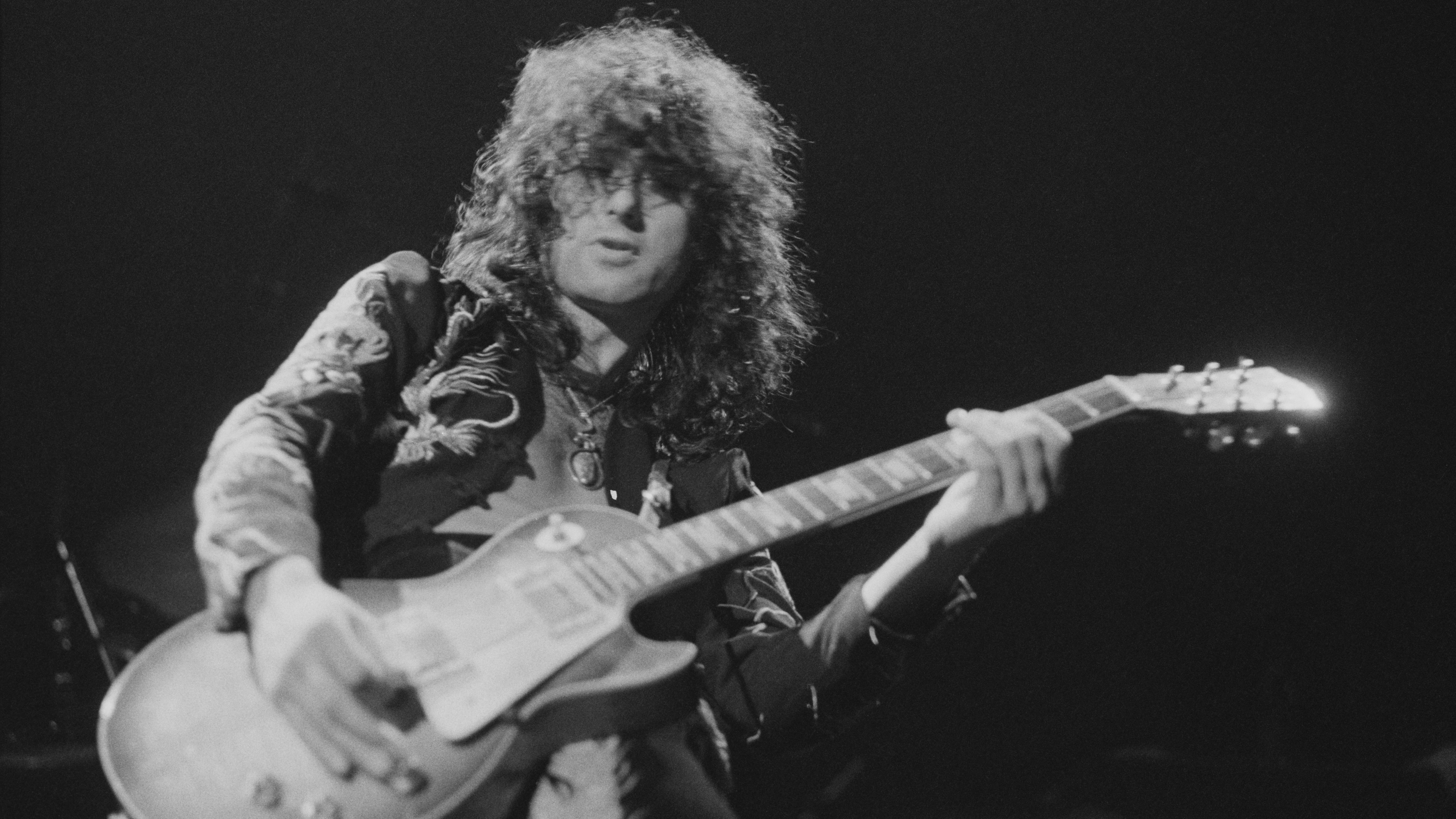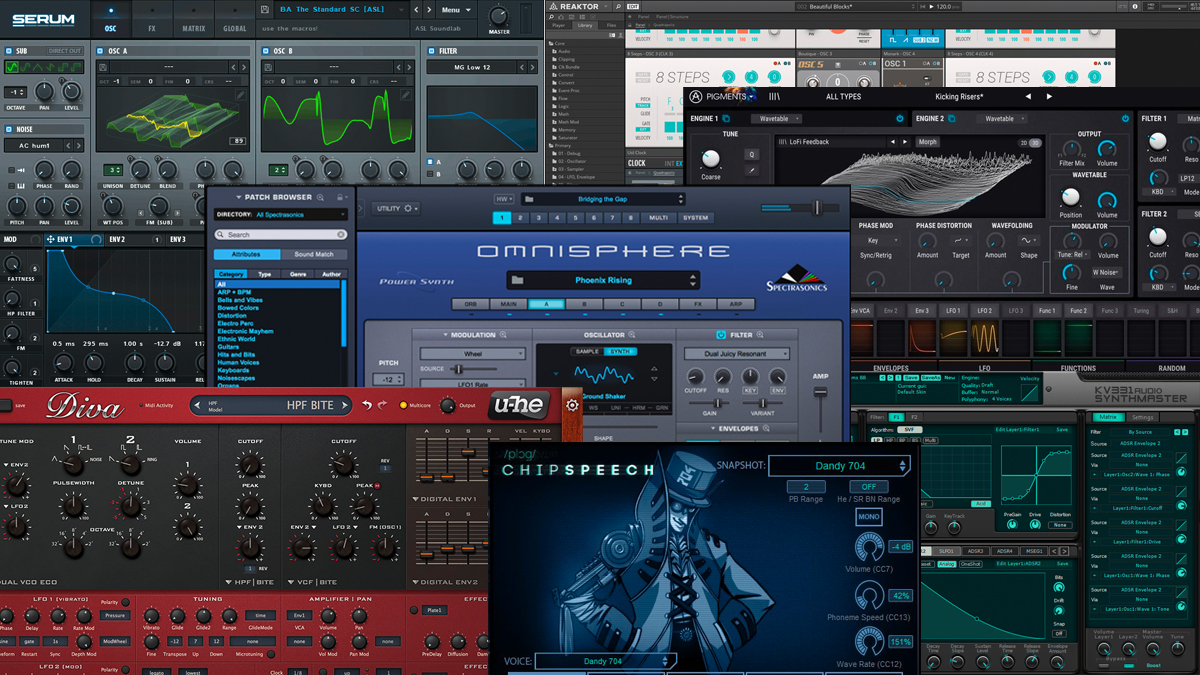“What you’re about to play should be influenced by what you just played”: 5 tips for better solos and cover versions by master guitarist Greg Koch
He says: “The main things I work on are vibrato, bends and phrasing”
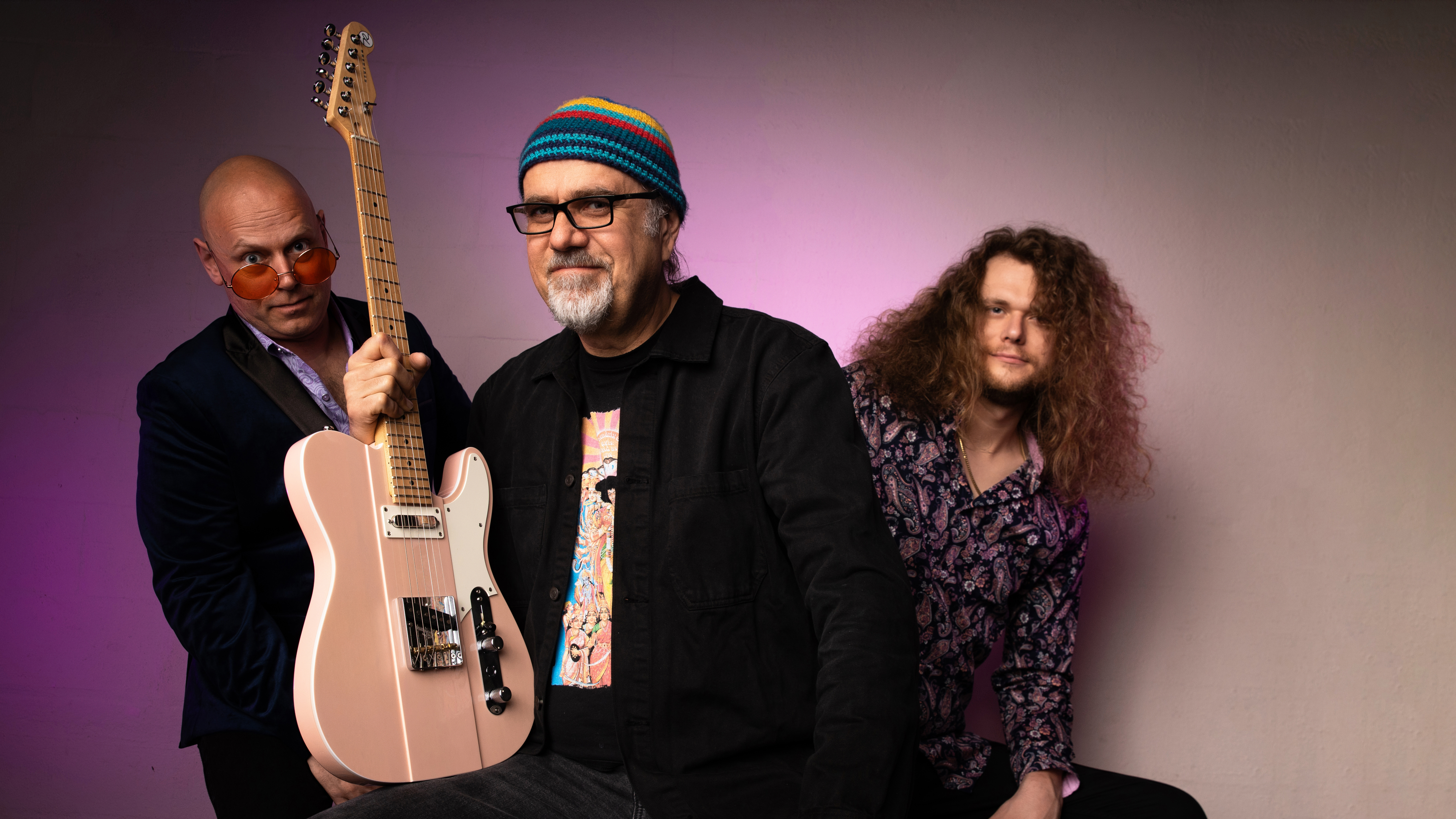
Greg Koch is more than just a guitarist, singer, recording artist and well-travelled live performer. He’s also a highly respected clinician and session pro.
He regularly appears on the social media channels for brands like Fishman and Wildwood Guitars, where he’s able to combine his devilish sense of humour with his well-rounded virtuosity in a very neat and enticing package for prospective buyers.
On a recent UK tour, Greg and his band – completed by his son Dylan on drums and Toby Lee Marshall on organ – were stunning audiences with a mind-melting smorgasbord of musical dexterity, wild-eyed improvisations and funky shoulder-swinging grooves.
Here, Greg offers his 5 tips for better solos and cover versions.
1. Know the chords you are playing over - but don’t overthink it
“We’ve been playing Jeff Beck’s Cause We’ve Ended As Lovers a lot over the years. We do it a little different: during the solos, usually it goes to a Gmaj7 but we do it as a G7#5b9, which allows me to do that altered dominant thing over that chord. What I like about that tune is that for some of the changes, like the G, you have to be cognisant of the chord you are on.
“I tend to like songs where you can play over the changes or you can ignore them. In other words, you can keep it really pentatonic and just vibe on that, or highlight the changes more like a jazz musician.
Get the MusicRadar Newsletter
Want all the hottest music and gear news, reviews, deals, features and more, direct to your inbox? Sign up here.
“When I was younger, having gone to music school, I felt the onus was on me to absolutely play over the changes, but eventually I realised that music is the goal. The vibey stuff is the articulation, the bends, the little wiggles and pick scrapes. Those are the nuances that make guitar playing cool.
“So when I approach a song like that, I will start each solo off in a way that’s different every time. There will usually be a motif or sequence where I do a call and response, and there might be one note that’s different each time that follows the chord change. That’s quite a fun thing. You establish a little four note thing and then update it ever so slightly each time. That’s a cool way to build things up because you’re being musical and not being obsessed with the changes. Back in the day, we’d get out the real book and play over the changes using arpeggios. We’d get obsessed with it and sometimes you’d be thinking too much and the moment would be gone! And you’d find yourself three chords behind trying to figure out what’s going on. Instead, try to establish a melodic morsel and use that to navigate the changes.”
2. Study the live versions of the songs you want to cover
“If you want to cover a famous song like Led Zeppelin’s Since I’ve Been Loving You, which we’ve been doing on our latest tour, there are a few different approaches. Someone who wasn’t familiar with the song would just look at the chords and automatically do their own thing with it. But if you’re as familiar with that instrumental as I am, the real magic is in trying to capture the melodic things that Robert Plant was doing [vocally], which was improvised on every version they ever did. And, of course, Jimmy Page had these little fills on different live versions and chordal things.

“I listened to so much Zeppelin, especially the live recordings, I had all that stuff stirring around in my brain. They always improvised so much within the template of whatever song they might be playing, I had this running catalogue of ideas that Plant and Page would use. And then I have my own things that I like to do over a minor blues chord sequence. I want to be respectful of the original composition and the various permutations those boys did live, and then just add in a little bit of secret sauce to make it my own.
“When you’re dealing with classic rock, you’ll get people saying, ‘You should be more respectful and play it note-for-note!’ And that’s the most ridiculous and ignorant thing. I’m someone creating music in the moment, respecting what was, but also doing their own thing. It’s not like some kind of religious museum piece. It’s rock and roll, for f**k’s sake!”
3. Steal from Albert Lee and Dickey Betts
“Interestingly enough, my introduction into faster country stuff was hearing Albert Lee play with Eric Clapton.
“I did not like country music growing up. I was a rocker! I was a blues guy. I was a Hendrix fan. All this country stuff did not do it for me early on. But then I heard Mark Knopfler and was blown away by the sound of that plucking he would do. I just liked the tone of a clean guitar, where he would pull and pop the strings and do those little muted notes. It was a powerful sound.
“Then I heard Albert Lee – which is strange, because it was all English guys for me. There was another guy called Ray Flacke who played on a Ricky Skaggs record Highways & Heartaches, which came out in the early 80s. It was on country pop radio, so I’d be hearing those songs a lot. I devoured that record when I got it. He was a unique dude because he was a country guy who grew up listening to Ritchie Blackmore, so he had a weird take on that style of playing. I heard all these guys prior to Danny Gatton or Brent Mason.
“I remember being really into The Allman Brothers and Dickey Betts had a way of doing these fiddle licks – Jimmy Page has used the same little sequence, but Dickey made a career out of it. He would do these different variations on the major pentatonic scale via these rhythmic fiddle licks.
“Once I learned the Knopfler pop, I would pop those Dickey Betts licks over a two beat thing and keep doing it. That gave me the impetus of having these speedy licks before I really got better at it.
“There was a couple of Albert Lee instrumental records from the mid 80s, one was called Speechless and the other was called Gagged But Not Bound on the MCA Masters Series label. A lot of what I do chicken picking-wise came from those two records.
“I was never into learning solos from beginning to end. I would just hear little things and take them. I was never into wasting time and trying to get the exact syncopations of other people’s solos from top to bottom. Instead, I would harness the cool bits I liked to make my own little language. The Dickey Betts thing is a simple way of getting these speedy things going.
“Some people love their compressors, I’ve always hated them, but if you really want to sound those old country guys, you might find they come in handy. I prefer the chicken picking, humour and funkiness. A compressor evens everything out and makes you sound faster than you are, especially when you are doing cascading open-string major scale stuff. That’s incredibly cool and sounds flashy. But it doesn’t sound improvised to me. They’re like set things. ‘Oh yeah, here comes the A chord so here’s my open lick for that!’”
4. Learn from the greats but form your own identity
“First of all, a disclaimer – anyone wishing to sound like me should probably seek counselling! I think the main things I work on are my vibrato, bends and phrasing. That’s the hardest thing about guitar, really. The idea of being able to play a simple bluesy melody, but with the microtonal bends and vibrato that gives it an identity. I learned this stuff from different places.
“I never wanted to sound exactly like somebody, but I’d like to exist in the same world as these people. If I want to do an Albert King thing, I can do it pretty effectively. Or I could Stevie Ray Vaughan doing Albert King, which is slightly different. Or use a Mick Taylor vibrato instead of what Peter Green would do. Spending time playing along with those records is very important. You have to listen and really try to nail it.
“Also, it’s important to record yourself. How we hear things in the moment and how they actually go down in reality are two different things. I remember back in the day, I was gigging all the time and thinking I sounded a certain way. People would record my shows and hand me a cassette tape a week later and I’d listen to it thinking ‘That’s shit, that’s definitely not what I was going for!’ And sometimes I’d be like ‘That’s actually good, I didn’t expect to sound that way!’
“It’s important to critique yourself and give yourself a bit of freedom – you might play a little different to how you thought, but maybe that’s a good thing. It’s not giving up, it’s embracing the cool things in your playing that you never really knew about it. I used to listen to loads of Peter Green and Danny Kirwan and realise that their vibrato was a little faster than mine. So I would emulate that and I didn’t really like the sound of me doing it. Sometimes my interpretation of what they were doing felt better or more satisfying. Certain things would be good for them, but not good for me. If you come up with something better than what you were going for... well, that’s the whole point of this!”
5. Look at your solo like a story that builds and builds
“One thing I talk about a lot in my clinics is what you’re about to play should be influenced by what you just played. It’s not a verbatim call and response, but you start off with an initial statement.
“It might be on the neck pickup, with more of a muted or staccato kind of feel. That will be my opening motif and I’ll work my way up from there. Or I might start with an open string hammer-on lick, and that might be my first salvo and I’m gonna work my way out of that. Or I might start on the bridge pickup sounding clean but really choke on the pick to get some pinched harmonic things, and then take it from there.
“All of these things could be the opening statement you are responding to in real time. You then have to go with the flow. It’s not about premeditated licks, although there might be some licks in there, but also in the context of how they’re responding to what you just played. If you think like that, you’ll never run out of licks because there are no licks being played. You’re just responding to whatever musical paint you threw against the wall.
“It’s also important not to think, ‘Oh, so-and-so is in the audience and I’ve got to do something to impress them’. Once you do that, you’re f**ked. You’ve just got to stay in the zone.
“You might build it up to some frothing apex where you do some sort of fast thing, but that should be the exclamation point. You build the story and build the story, and then at one point you finish it with fireworks.
“If you’re just shredding from the start, the average brain will eventually tune out because it’s too much, even if there are peaks and valleys in all the 32nd notes. If you keep this call and response thing going, accentuating it here and there with something more flashy that makes sense, that’s way more effective and you won’t run out of ideas.
“Sometimes I finish the night and think, ‘Oh, I didn’t even play any of this other shit!’ When you’re younger, you want to show everyone you can do X, Y and Z. That’s not important. What is important is making music in the moment. Sometimes that means you’re not exhausting any of your vocabulary because you’re not really playing vocabulary... it’s about the musical utterances you find in the moment.”
Amit has been writing for titles like Total Guitar, MusicRadar and Guitar World for over a decade and counts Richie Kotzen, Guthrie Govan and Jeff Beck among his primary influences. He's interviewed everyone from Ozzy Osbourne and Lemmy to Slash and Jimmy Page, and once even traded solos with a member of Slayer on a track released internationally. As a session guitarist, he's played alongside members of Judas Priest and Uriah Heep in London ensemble Metalworks, as well as handling lead guitars for legends like Glen Matlock (Sex Pistols, The Faces) and Stu Hamm (Steve Vai, Joe Satriani, G3).
“It is ingrained with my artwork, an art piece that I had done years ago called Sunburst”: Serj Tankian and the Gibson Custom Shop team up for limited edition signature Foundations Les Paul Modern
“The last thing Billy and I wanted to do was retread and say, ‘Hey, let’s do another Rebel Yell.’ We’ve already done that”: Guitar hero Steve Stevens lifts the lid on the new Billy Idol album


